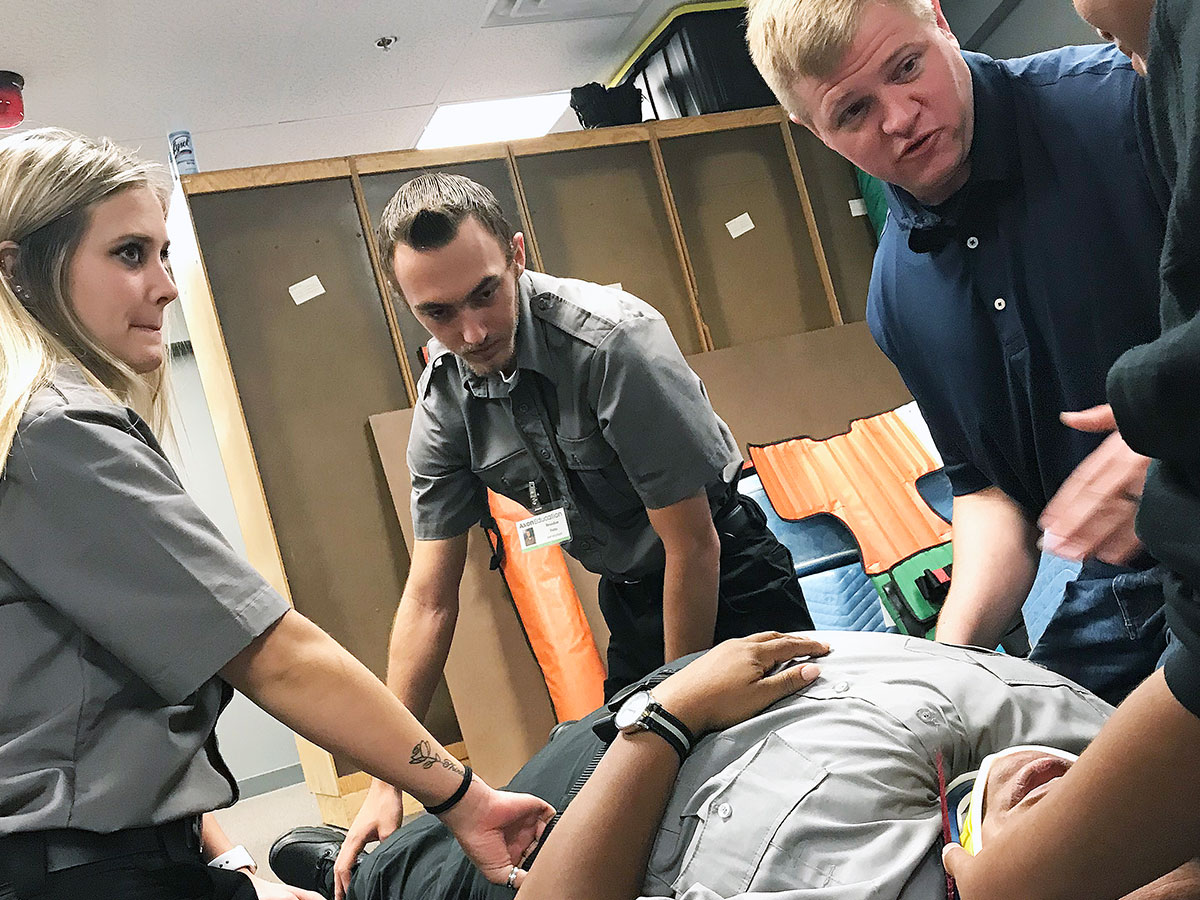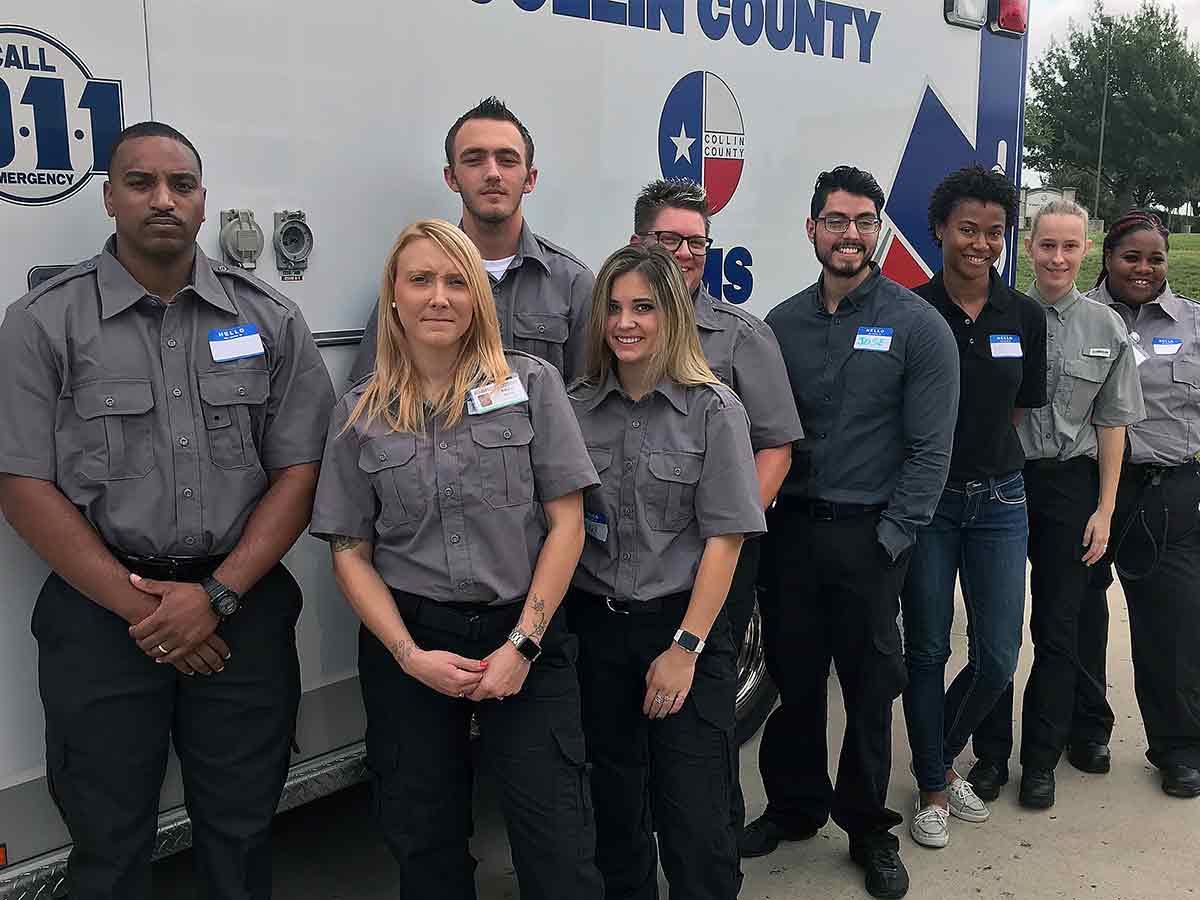No Title
Paramedic Training: Mastery of Skills for Critical Care Situations
Introduction
In the world of emergency medical services (EMS), paramedics play a crucial role in providing immediate care to patients in critical situations. They are highly trained professionals who possess a diverse set of skills that enable them to make life-saving decisions and provide essential medical interventions in the field. Paramedic training is essential for individuals seeking to enter this challenging yet rewarding profession. This article will explore the various aspects of paramedic training, including the importance of basic EMS education, the role of Texas EMS schools, and the benefits of online EMS training courses.

Paramedic Training: What Does It Encompass?
Paramedic training involves a comprehensive curriculum designed to equip individuals with the necessary knowledge and skills to handle critical care situations effectively. From learning about anatomy and physiology to mastering advanced medical procedures, paramedic training covers a wide range of topics that prepare students for real-world scenarios they may encounter on the job.
Basic EMS Education: Laying the Foundation
Before diving into more advanced concepts, aspiring paramedics must first undergo basic EMS education. This component of their training focuses on building a solid foundation in emergency medical services. Students learn fundamental principles such as patient assessment, airway management, CPR techniques, and basic life support skills.
Texas EMS Schools: Excelling in Education
Texas is known for its high-quality educational institutions, and this reputation extends to its EMS schools as well. These schools offer comprehensive programs that meet national standards while also adhering to state-specific requirements. Students who attend Texas EMS schools can expect rigorous coursework, hands-on practical experience, and expert faculty members who bring real-world expertise into the classroom.
Traditional Face-to-Face EMS Courses: A Tried-and-True Approach
For many years, traditional face-to-face EMS courses have been the go-to method for paramedic training. These courses typically involve attending classes at physical locations where students can interact directly with instructors and classmates. This traditional approach provides valuable opportunities for hands-on practice, immediate feedback, and collaborative learning.
Online EMS Training Courses: The Future of Learning
In recent years, online EMS training courses have gained popularity as a flexible and convenient alternative to traditional classroom settings. These courses offer students the flexibility to learn at their own pace and from the comfort of their own homes. With advancements in technology, online EMS training courses now incorporate interactive simulations, virtual scenarios, and multimedia materials to provide a rich learning experience.
Paramedic Training FAQs
Q: What are the prerequisites for paramedic training? A: Requirements may vary depending on the program and state regulations, but most paramedic training programs require applicants to have a high school diploma or GED equivalent. Some programs may also have additional prerequisites such as CPR certification or EMT-Basic certification.

Q: How long does paramedic training take? A: The duration of paramedic training varies depending on the program. On average, it can range from 12 months to 24 months.
Q: Are paramedic training programs accredited? A: Yes, reputable paramedic training programs are typically accredited by recognized accrediting bodies. Accreditation ensures that the program meets established standards of quality and prepares students for professional practice.
Q: What skills will I learn during paramedic training? A: Paramedic training covers a wide range of skills, including advanced airway management techniques, cardiac monitoring and defibrillation, administering medications, trauma care, and emergency childbirth assistance.
Q: Can I work as a paramedic while pursuing further education? A: Yes, many individuals work as paramedics while pursuing additional education in related fields such as nursing or physician assistant studies. The flexibility of working shifts allows them to balance work and further education.
Q: Are there opportunities for career advancement in the field of paramedicine? A: Absolutely! Paramedics can pursue various career paths, including becoming a flight paramedic, critical care transport paramedic, or even transitioning into roles such as EMS educator or supervisor.
Conclusion
Paramedic training is a crucial step towards mastering the skills required to handle critical care situations. Whether through traditional face-to-face courses or online training programs, aspiring paramedics have ample options to choose from. With the right education and training, individuals can embark on a fulfilling career where they make a significant impact on the lives of others. So, if you have a passion for helping others and thrive in high-pressure situations, explore the world of paramedic training and Texas EMS School unlock your potential in the field of emergency medical services.
